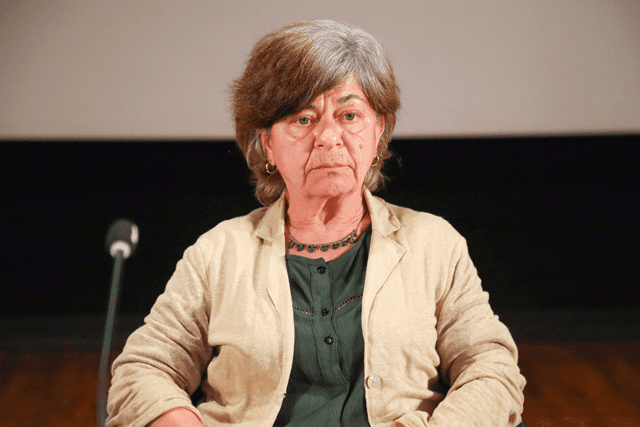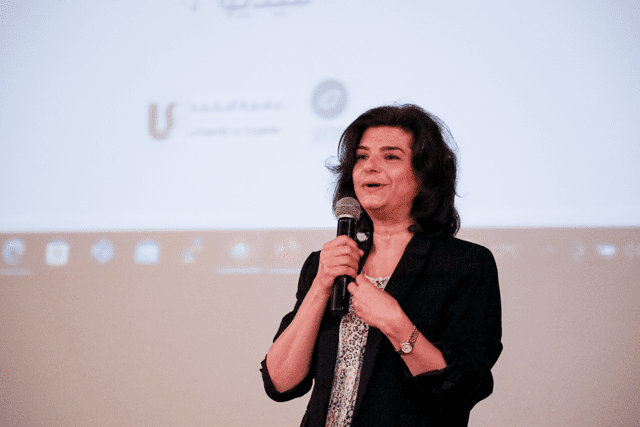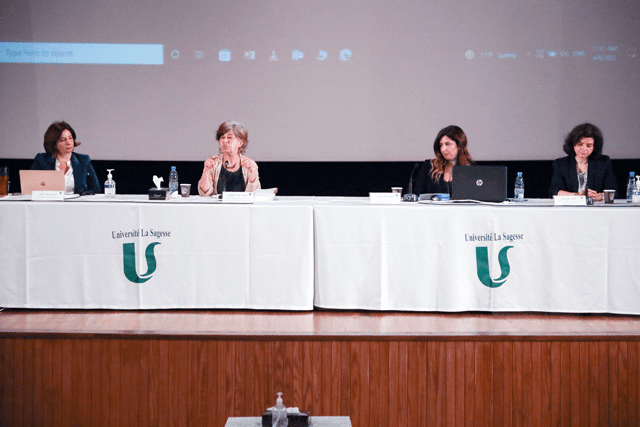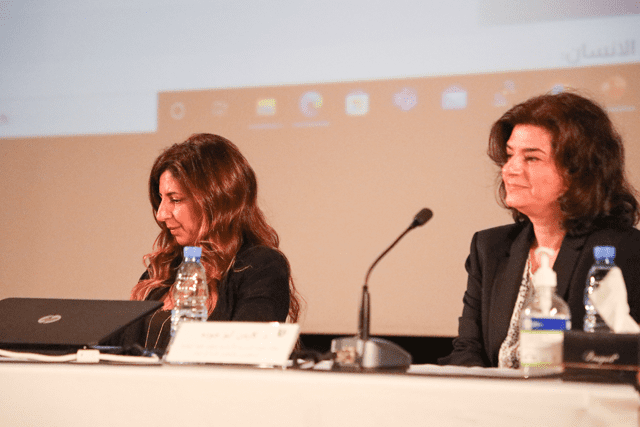Halawani asks: How long will it take for us to know the fate of our kidnapped and missing persons?
Sagesse University – the Legal Clinic for Human Rights, in conjunction with the anniversary of the outbreak of the Lebanese war, launched the new program of virtual classes on “Dealing with the Past – Missing and Forcibly Disappeared in Lebanon” in a meeting in which the Chairperson of the Committee for the Families of the Kidnapped and Disappeared in Lebanon and a member of the National Commission for Missing and Forcibly Disappeared participated Mrs. Wedad Halawani, during which the program, which will be provided free of charge for students and for those who wish to join from outside the university, was highlighted by registering on the website: https://mooc.uls.edu.lb. The meeting was also an occasion to address issues related to the past through A discussion with students who asked their questions and opinions about the ongoing repercussions of the war and its effects on their future.
Halawani made an intervention in which she described the path that the people took as long and paved with traps, during which the people were exposed to all kinds of encouragement and intimidation. She considered that the adoption of Law 105 in 2018 gave hope to establish the right of the people to know the fate of their missing persons, but the law, after four years, is still ink on paper. It gave the National Authority wide powers to reveal the fate of the missing, but its work is still frozen for not providing it with the capabilities it needs. Halawani stressed the need to activate and support this authority in order to carry out its work. She asked, “How long do we have left? We have the right to live like everyone else and not to be in a constant state of waiting!” She regretted that the Parents’ Committee will complete the fortieth year of its struggle next fall without knowing the fate of its kidnapped and missing persons, and without justice having been achieved in a case that the people succeeded in making it patriotic par excellence away from all sectarian and partisan affiliations.
Dealing with the past
The meeting began with a speech by the Dean of the Faculty of Law at Al-Hikma University, Dr. Melhem Al-Kak, who regretted the continuation of talk about the effects of the forty-seven-year war. He added that officials in Lebanon “sold people legally” has not been implemented, but the issue of the missing is still unresolved and the loss continues at all levels until we almost lose the country. Dr. Kik recalled the words of Georges Clemenceau: “The victims of wars died for nothing. They died for us only,” to confirm that what is important is the continuation of the confrontation so that we are not the nothing!
Then, the Director of the Human Rights Legal Clinic at Al-Hikma University, Mrs. Rina Sfeir, explained that the aim of the courses on “Dealing with the Past” is to introduce the younger generations to the modern history of Lebanon, especially that the official dealings with human rights issues that resulted from the war were completely unserious, which is This led to recurring crises. “As long as those responsible for the war are not held accountable, and the fate of the missing remains unknown, memories of the war will remain before us,” Sfeir said.
In turn, Lina Gross, Director of Programs and Director of Communication at Nawaat for Legal Initiatives, SEEDS, explained the details of the virtual classroom program, noting that in addition to the content, it will include live experiences and visual materials. The program is open to students as well as to those interested in joining from outside the university, as it will highlight the importance of achieving justice and creating a collective memory that recognizes the ugliness of war.
The political science researcher, Dr. Carmen Abu Joudeh, gave a detailed presentation of the lessons she prepared and said that they will focus on the missing and the forcibly disappeared, and will address the history of the Lebanese war and the steps that preceded and followed it, marked by the contempt of the successive governments towards the issue of the kidnapped and missing.










